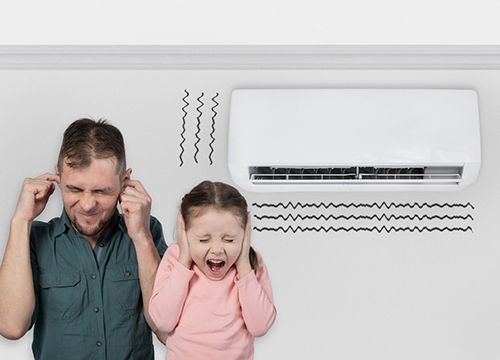How to Reduce HVAC Noise in Your Home
HVAC systems are essential for keeping your home comfortable, but they can sometimes generate an unwanted side effect: noise. Whether it’s a humming, buzzing, or rattling sound, HVAC noise can disrupt your peace, affecting your relaxation and daily activities. There are several practical steps you can take to minimize HVAC noise and create a more serene living environment. In this guide, we’ll explore effective strategies for reducing the noise produced by your heating and cooling system, so you can enjoy a quieter, more comfortable home.
10 Tips for a Quieter Home
- Choose a quieter HVAC system – When installing a new HVAC system, consider selecting a model designed for quiet operation. Look for units with sound-dampening features or systems that operate at lower decibel levels. Modern systems often have advanced noise-reduction technology that minimizes operational sounds.
- Regular maintenance – Maintaining your HVAC system helps keep it running smoothly and quietly. Schedule regular inspections and tune-ups to address any issues that could cause excessive noise. Clean or replace filters regularly, as clogged filters can force the system to work harder, leading to increased noise.
- Insulate ductwork – Insulating your ductwork can significantly reduce noise. Use duct insulation to minimize the sound of air moving through the ducts. This helps in reducing vibrations and prevents noise from traveling through the walls and ceilings.
- Add sound barriers – Install sound barriers around noisy HVAC components. For instance, placing acoustic panels or soundproofing materials around the indoor unit can absorb sound and prevent it from spreading. Ensure these barriers do not obstruct airflow or access required for maintenance crews.
- Check for loose parts – Loose parts can create rattling and banging noises. Inspect your HVAC system for any loose screws, bolts, or other components, and tighten them as needed. Secure loose ducts or panels to reduce noise generated by vibrations.
- Adjust fan speed – Sometimes, high fan speeds can contribute to excessive noise. Check if your HVAC system allows you to adjust the fan speed. Operating the fan at a lower speed can reduce noise while maintaining effective airflow.
- Upgrade to a variable-speed motor – A variable-speed motor can operate more quietly than a traditional single-speed motor. These motors adjust their speed based on the heating or cooling needs, resulting in quieter operation and improved comfort.
- Seal air leaks – Air leaks around your HVAC system can contribute to noise. Seal any gaps or cracks around the unit and ductwork to prevent air from escaping. Proper sealing can reduce noise and improve the overall efficiency of your system.
- Install vibration pads – Vibration pads can help reduce noise caused by vibrations from the HVAC system. Place these pads under the unit to absorb vibrations and prevent them from transferring to the floor or walls.
Consult With a HVAC Professional
If you’ve tried these methods and are still experiencing excessive noise, consult a professional HVAC technician. They can identify specific issues with your system and recommend solutions tailored to your situation.
By implementing these strategies, you can enjoy a quieter, more comfortable home without the disruptive noise of your HVAC system.
Want a quieter, more peaceful home? The experts at Comfort Solutions HVAC are here to help! Contact us today to schedule an HVAC checkup and get your system ready to perform optimally again.

Recent Posts

Zoned Heating Systems – What Are They? What Are the Advantages?

The Impact of Furnace Size on Efficiency and Comfort

How to Reduce Your Heating Bills this Winter

The Benefits of Seasonal HVAC Inspections
